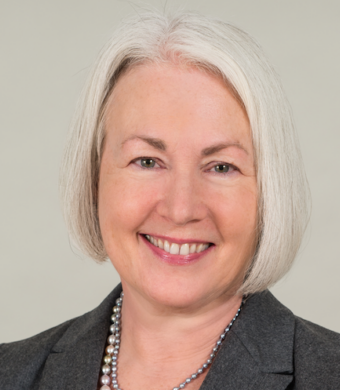
Profiles in Power highlights public officials nationwide who are improving their communities through their dedication, enthusiasm, creativity and experience.
This week’s profile is Christina Clark, Ph.D., president of La Roche University in Pittsburgh.
Public career highlights and education: Growing up in a military family, I was educated in Department of Defense or public K-12 schools before earning my undergraduate degree from Georgetown University and my graduate degrees in classics from the University of Wisconsin-Madison. Over my career I’ve worked at a variety of institutions: large state flagship universities, small liberal arts colleges and Catholic comprehensive universities. While I loved teaching, I moved into administrative roles to work in a systemic way to foster academic excellence and to improve inclusive and equitable student access, retention, and success.
It is my great honor to serve as the eighth president of La Roche University, a private Catholic institution in Pittsburgh, offering a transformative education through both liberal arts and professional programs in which students develop knowledge, skills, and a global perspective, preparing them for jobs and careers in our rapidly changing world and workplaces.
What I like best about public service: I find great meaning and joy in helping people access the education they need to develop their potential, explore their academic and career interests, and become flexible learners so they can thrive in our time of almost unimaginably fast change and transformation. Helping students by teaching, serving as an advisor, connecting them with internships or other experiential learning opportunities and helping them get scholarships for study abroad or graduate school are all deeply fulfilling.
The best advice I’ve received was: Don’t be afraid to try new things and risk failing. Failure is a vital component of success, and it builds resilience, one of the most important skills we can have both in our personal lives and on the job.
People might be interested to know that: I love to dance and have studied ballet, tap and jazz. As a teenager I spent my summers studying ballet in New York City; it was a thrill to take class with my peers at the School of American Ballet or with my favorite dancer, the brilliant Gelsey Kirkland, at David Howard’s studio and to see Mikhail Baryshnikov in the American Ballet Theater school studios. I also studied the clarinet in elementary school and sang in the junior swing choir in secondary school, benefiting greatly from public arts education. In addition to enjoying myself and developing my talents, in all of these I learned how to work together with others as part of an ensemble.
One thing I wish more people knew about higher education: Universities are drivers of social and economic mobility. Higher education is especially important now when artificial intelligence (AI) is transforming the global economy; it is predicted that AI will significantly impact up to 60% of existing jobs. With its liberal arts foundation, higher education enables people to develop vital human skills and an intellectual toolkit that includes empathy, creativity, critical thinking, systems thinking, entrepreneurship, collaboration, intercultural competence, and the ability to communicate effectively. By learning different modes of inquiry, people cross-train their brains, so to speak, becoming flexible learners. On average, someone with a college degree earns over $1,000,000 more in lifetime income than someone with no degree or only some college credits. Seventy-five percent of people graduate with debt less than $40,000. To put that in perspective, this is less than the average cost of a new car.
The post Universities drive social, economic mobility, La Roche University president says appeared first on Government Market News.
